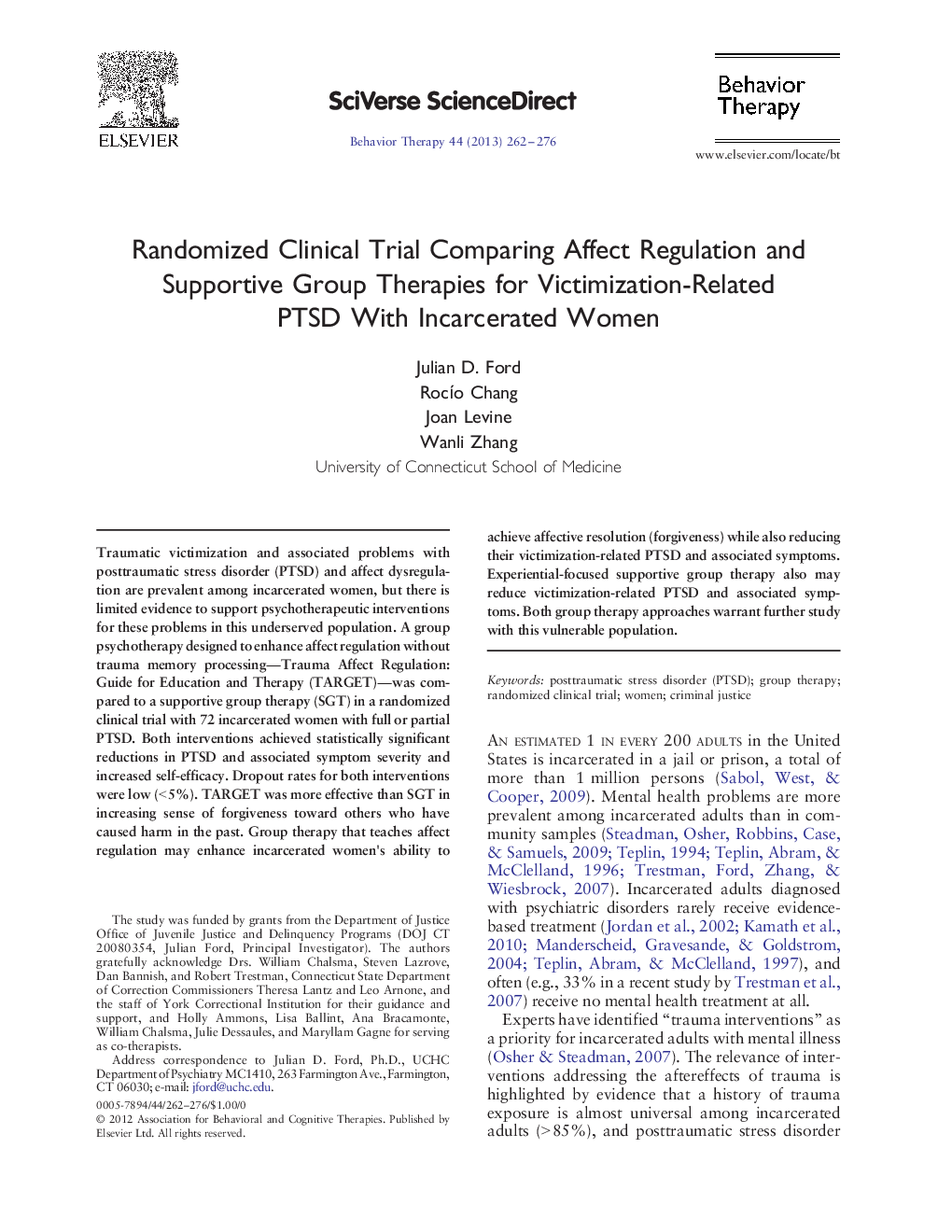| Article ID | Journal | Published Year | Pages | File Type |
|---|---|---|---|---|
| 901305 | Behavior Therapy | 2013 | 15 Pages |
Traumatic victimization and associated problems with posttraumatic stress disorder (PTSD) and affect dysregulation are prevalent among incarcerated women, but there is limited evidence to support psychotherapeutic interventions for these problems in this underserved population. A group psychotherapy designed to enhance affect regulation without trauma memory processing—Trauma Affect Regulation: Guide for Education and Therapy (TARGET)—was compared to a supportive group therapy (SGT) in a randomized clinical trial with 72 incarcerated women with full or partial PTSD. Both interventions achieved statistically significant reductions in PTSD and associated symptom severity and increased self-efficacy. Dropout rates for both interventions were low (< 5%). TARGET was more effective than SGT in increasing sense of forgiveness toward others who have caused harm in the past. Group therapy that teaches affect regulation may enhance incarcerated women's ability to achieve affective resolution (forgiveness) while also reducing their victimization-related PTSD and associated symptoms. Experiential-focused supportive group therapy also may reduce victimization-related PTSD and associated symptoms. Both group therapy approaches warrant further study with this vulnerable population.
► Traumatic victimization, PTSD, and affect dysregulation are prevalent among incarcerated women ► Two brief group psychotherapies without trauma memory processing were compared in a randomized clinical trial ► Both interventions achieved significant reductions in PTSD symptoms and improvements in self-regulation and sense of hope ► TARGET was more effective than SGT in increasing sense of forgiveness ► These therapies warrant further research as treatments for incarcerated women with victimization-related PTSD
